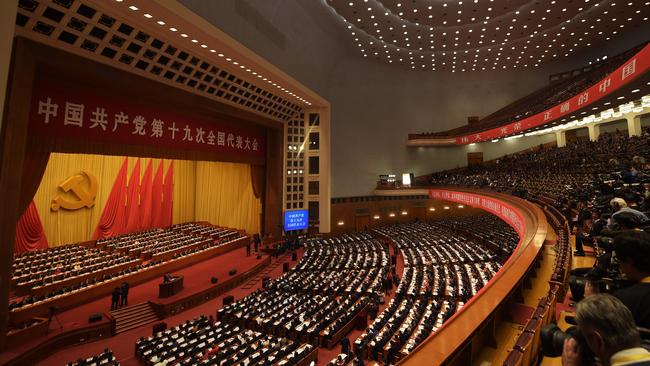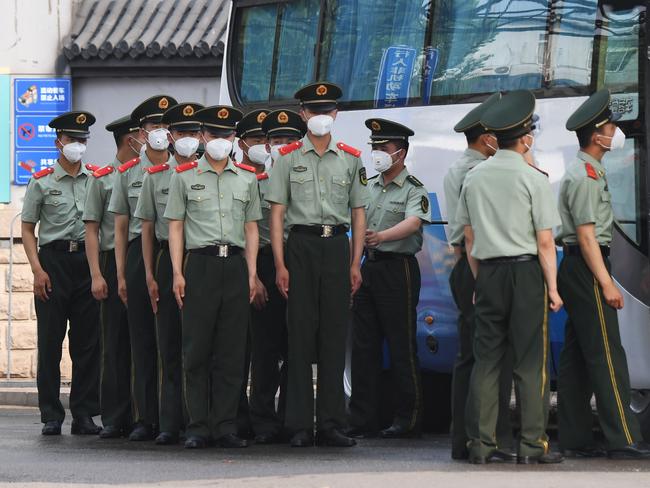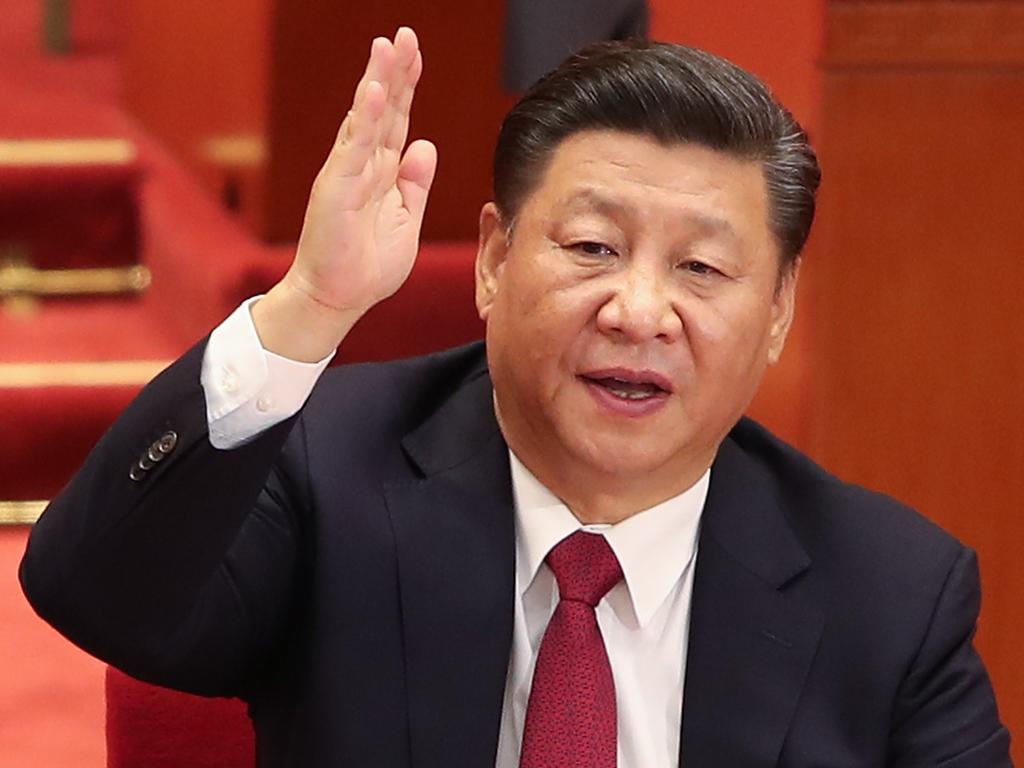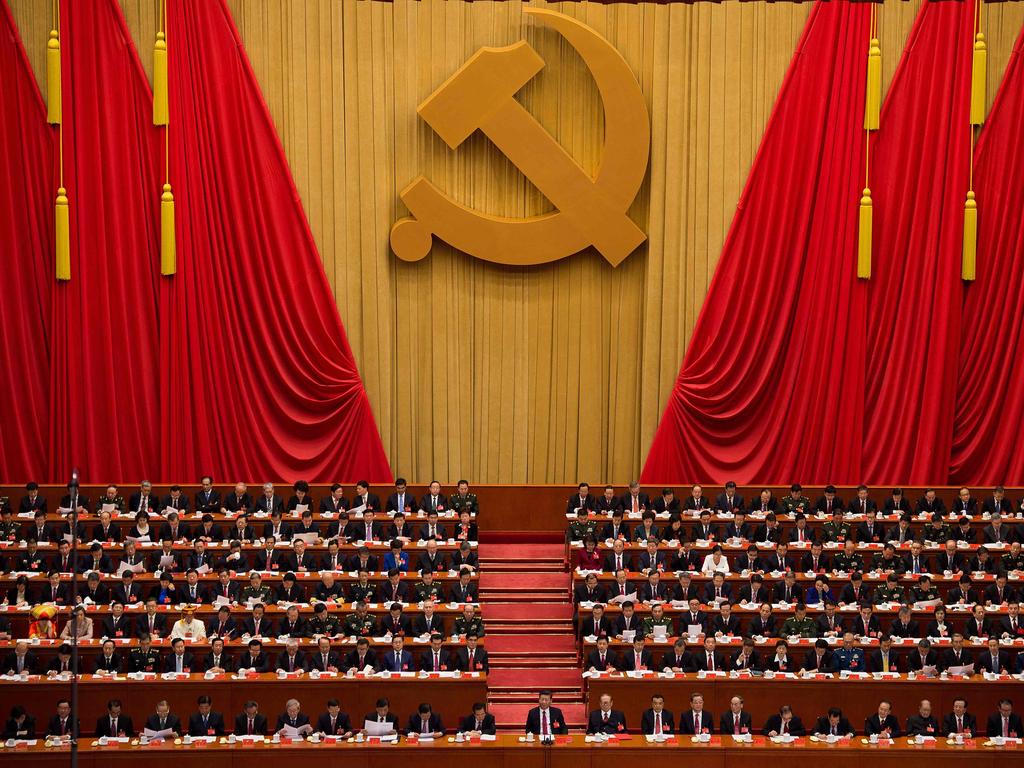Exposing mystery and menace of Chinese Communist Party membership

The truth is we don’t really know because we’re dealing with a secretive totalitarian regime. And that’s why Monday’s revelations, published in The Australian, should prompt serious questions about how Australian companies and government agencies handle the question of how to do business with — and in — a one-party state.
Most people in Australia encountered socialism, if they did at all, on university campuses. They may have encountered the odd bespectacled professor claiming to be Trotskyist or even the ancient original members of the Australian Communist Party. The word “communist” has a different meaning in Australia. Harmless, certainly not powerful, and slightly embarrassing, like a teenage poster that comes down at a certain point.

We might comfort ourselves with the fact the contemporary membership of the CCP is as unrecognisable to us as it would be to Karl Marx. Many of its members would probably have little time for the bearded and carbuncled European. Marx has been a long-time embarrassment for Marxists and the latest and greatest embarrassment is that most members of the CCP would likely be the enemies of another Mao Zedong.
So what then is the CCP today? Well, when Internet 2.0 was asked by the Inter-Parliamentary Alliance on China to investigate a purported membership list, we endeavoured to assist journalists. A fascinating project. As a people of the left, we are not interested in invalidating people based on their political beliefs. As a result, the project had to be handled carefully. The initial point was, as always, to assume everything we had was wrong. We investigated the source of the document and sifted the internet for signs of its existence. Unlike other cases, where communal resources such as Shodan and SecurityTrails might point to a path, this list wasn’t going to give up its origin so easily. Beginning with the structure of the data itself, some 1,957,239 individuals were identified by common fields. Additional details, including phone numbers and addresses, were included. Against known sources, this amounts to 2.1 per cent of the full number of party members.
After significant investigation we found the original server was an open-source MYSQL database. Our team, ignoring the copy given to us by IPAC, found the same document dated April 16, 2016 and tracked it across social media. Our assessment is that it was uploaded to private chatrooms, frequented by activists from a range of backgrounds including Hong Kong, Taiwan and Falun Gong. Users had reformatted the data into an Excel spreadsheet. It was co-leaked with data from the Jangxi Youth League.
We found the list had been used by a range of institutions. Activists of various stripes used the data internally as a source of counterintelligence. Intelligence analysts in our team matched the data to several high-profile cases.

Those we would expect to see on this list were there. Journalists in the investigation then confirmed contact details were accurate where available. Care was taken to ensure people on the lists were matched to real identities. Dates of birth, names and professions were all assessed to this end. The team then matched our source documentation to the IPAC data and found it to be the same; the version we had been given matched the original. The Australian then obtained another, more complete, copy of the database, which we matched to the other copies. As a result, we have high confidence that what is being presented is the original document leaked by activists.
What then does this leave us with? A list of individuals, billionaires, politicians, people working within Five Eyes governments. Internet 2.0 does not believe in data dumping. We do not believe the world was well served by WikiLeaks and we use the same standard when it comes to China. We emphasise the majority of victims of the CCP are Chinese, and being Chinese is not grounds for suspicion.
What about the members of the CCP? Internet 2.0 is not for McCarthyism. We have here a collection of names, members of a party, legally obliged by their CCP membership to support racist policies in Tibet, Xinjiang, Mongolia and other places. The roles they hold in our governments and companies are not benign and it is in the public interest for people to have parts of this information.
However, Internet 2.0’s view is that it is important for journalists to investigate and interpret and it is for full law enforcement, and law enforcement alone, to render any formal action. It is our preference that the full list of names not be made public.
Robert Potter and David Robinson co-founded Australian cybersecurity firm Internet 2.0.






What does it mean to be a member of the Chinese Communist Party today? Is it like being part of the party in Soviet Russia or in 1930s Germany? Are all members “true believers”? Or is it more like a trade union affiliation?